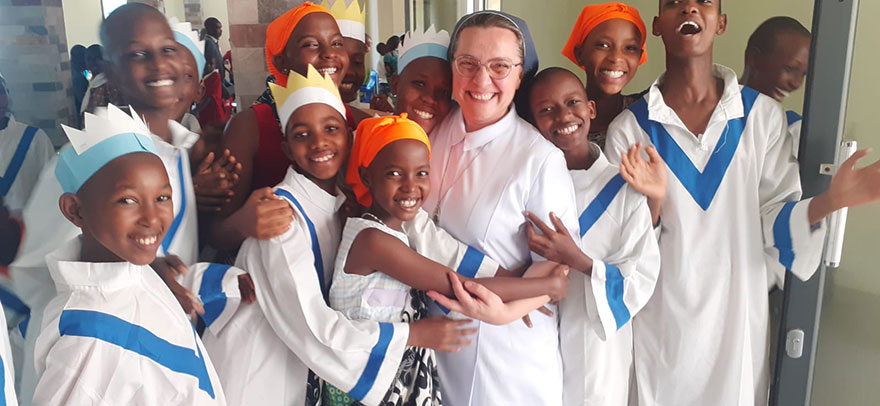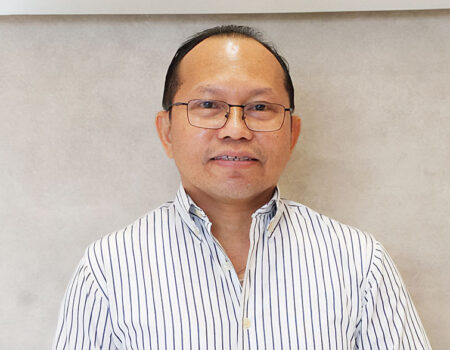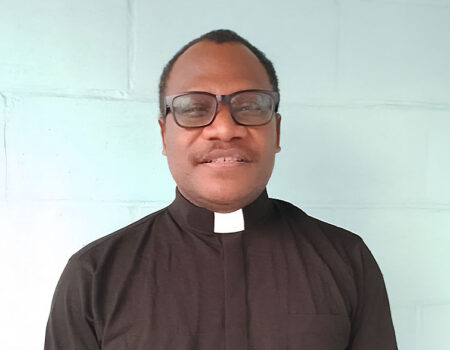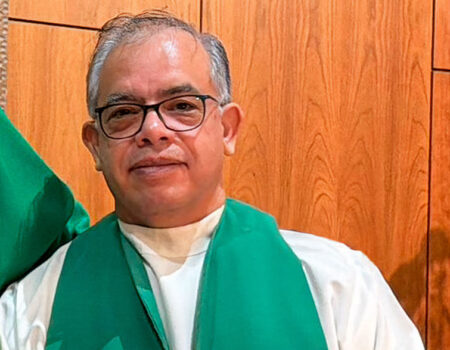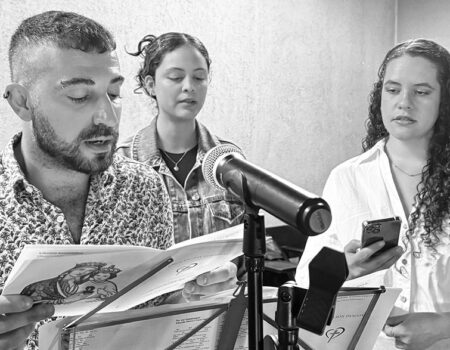Europe as a mission land
Tuesday October 22, 2024
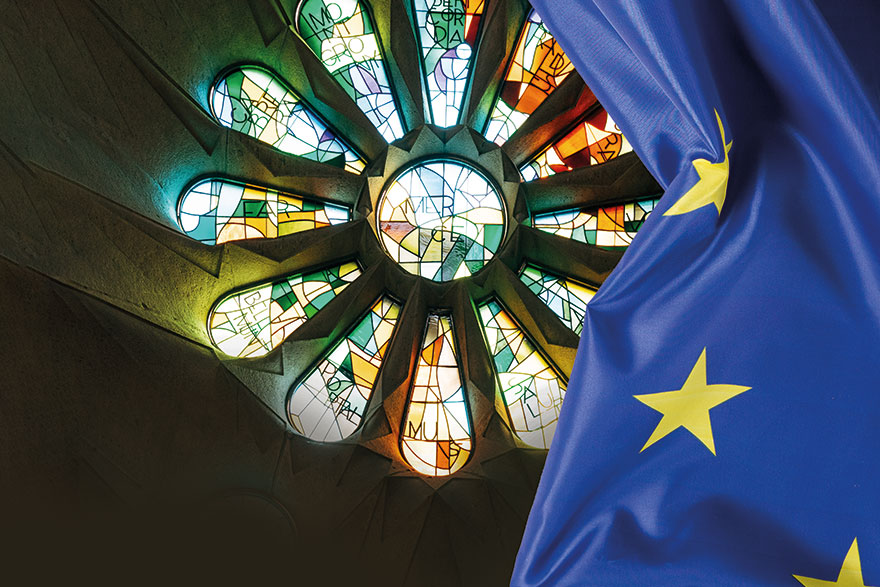
‘But the time has come, and it is now, when the true worshippers will worship the Father in spirit and truth, for the Father seeks such worshippers’ (Jn 4:23). Two thousand years after the incarnation of the Son of God, we find ourselves at a moment in salvation history when being a Christian, a disciple of Christ, a member of the Catholic Church, goes beyond the structures, customs and traditions handed down to us today.
Salvation history continues because it is God’s work, and even amid storms and difficulties, Jesus is with the community, present in his Church. This verse from John’s Gospel does not mean that today, the Catholic faith is justified by being lived in an individualistic and personal way, only personal, but that we are rediscovering what the Lord announced to us, that is, to live fully our vocation as children of God, without fear, without shame, accompanying and accompanying each other to create deep bonds founded on his word and under the guidance of the Spirit.
A life lived fully in the light of the Gospel is already a witness and is already going out. In Europe, there are still movements, associations and institutions that are very committed to sharing the faith, popular religiosity and the joy of being disciples of Christ. And alongside them, there are still many who no longer want to know. Let us discern, observe and assume with hope, without scaremongering.
‘The change of epoch, which also includes the end of Christianity and parochial civilisation, demands an ecclesial reform that accepts to face and manage the fear of loss linked to change, focusing on what is essential: the life of the community of the baptised which finds its reason for existence in faith in Jesus Christ. This change will also affect the priestly ministry and the role of the laity as presiders of liturgical celebrations’ (Rites without priests, Rivista di Pastorale Liturgica, August 2024).
Christian society has ended, and it is therefore urgent to set in motion a new dynamic, a process. Improvised proposals, animation programmes and celebrations for an event, a missionary month, or an anniversary are no longer enough. Authentic itineraries are needed, processes that listen to and consider all realities, not to satisfy them but for the common good and to build relationships. We do not doubt that God is present in the world among the men and women of our time. His presence accompanies the person in the search for the meaning of life, for the good, the good and the beautiful. This presence, as Pope Francis says, must not be fabricated but revealed and discovered.
Tertullian said: ‘You are not born a Christian;
you become a Christian’.
Indeed, there is a weakness of faith in this historical period. In Europe, particularly the Christian basis of society, the family and life have been missing for a long time. If we look at the Church only as a visible assembly, we notice the continuous decrease in the number of the faithful. Many are even calling for the cancellation of Baptism, the sacrament that grafts us into Christ and the Church.
The number of ‘traditional’ believers, understood according to structures and concepts linked to the last century, is undoubtedly decreasing if we look at participation in Sunday Mass, for example, or in other activities and meetings proposed by parish communities, but this does not mean that there are no people who believe in God, in the God of Jesus Christ, in the Kingdom of God and that precisely by this faith they set out and seek to live the faith and the Gospel in a meaningful way, as baptised persons and members of the universal Church, for evangelisation (‘To evangelise is to make the kingdom of God present in the world’, EG 176)
Let us courageously acknowledge the present situation. This requires an openness of mind and outlook to meet and rediscover Christ’s disciples, to meet them and help them to have an authentic experience of the living Jesus. This means that we must ‘go to where the new narratives and paradigms are born, to reach with the Word of Jesus the deepest cores of the soul of the cities. We must not forget that the city is a multicultural environment’ (EG 74).
The Church is not called to be the centre but to present itself as a good for all and to be close to all. So today, the churches as structures are no longer at the centre of the life of people and cities but have become marginal. Many structures of the certainties of the past, both in society and the church, have collapsed. The generation gap is widening, causing tensions and disintegration in communities (of all kinds) and families.
I believe that listening, not only institutional and institutionalised but daily listening, is the fundamental element and attitude, so ancient in the Bible but always so relevant. Listening, however, in the light of the word of God, is the foundation of all thought and action of the disciple of Christ, of the missionary disciple.
We are insistently called to listen to the Holy Spirit to discern in the crowd, in the communities, those called to be sentinels, beacons, lights, multipliers, and apostles.
And to learn that one is not a Christian by tradition but by a conscious choice made personally, at a particular moment of our life, with enthusiasm to put on Christ and the ability to transmit him with joy.
‘Although many Europeans no longer consider themselves Christians, they still hunger for spiritual values…. But today, they ‘believe witnesses rather than teachers; they believe experience rather than doctrine, life and facts rather than theories.’ (RM 42). And if they listen to teachers, it is only because these teachers are first of all witnesses’ (Antonio Pernia, SVD).
What was announced by Paul VI and then by John Paul II is even more true today in the multicultural context of Europe. We need a missionary project for Europe. Only a conscious Christianity can be missionary; only a Christian who is aware of his Baptism can feel and be a brother/sister to others, to many, to all, and thus be missionary, catholic, universal. It is not a question of planning and will but only of heart and spirit. Being and wanting to be a community, the body of Christ. But all this requires the knowledge (as experience and not only intellectual) of Christ, of the Word of God.
Pope Francis continually invites the Church to go out. And the Church is each one of us. Do we feel impelled, motivated by the Spirit to go out, without fear, tiredness or melancholy, with joy to meet the world, people, and each person, without prejudices or preconceptions, but with a solid Christian identity? Do we want to move away from individualism, which is something that is not proper to the baptised and which is increasingly widespread in today’s social context? In Europe, the various proposals are losing ground every day. How can we make a difference?
There is still a small flock that preserves the faith and tries to nourish it, also thanks to the witness of those who live on the other side of the world and next to us. The European scenario before us is an opportunity; we have to be convinced of it. A few years ago, we were in a situation of Christianity and faith that we can define as mixed. In some villages, there were still religious customs and the request for Christian gestures and rites: baptisms, first communions, confirmations, and marriages, which today are very much in the minority. It was a Christianity of duty and then also of commitment. It was the Christianity of causes, of humanitarian and socio-political challenges, of charitable organisations, of service to the poorest. It was a great gift that worked very well in us and others, but which caused a bit of imbalance.
Today, this way of understanding faith, duty and commitment is no longer attractive; it is no longer felt as something or someone who responds to people’s deep needs. And this is because we are in a crisis concerning cultures characterised by duty and commitment. This is no longer the era of stability and conformity. We have moved from duty to freedom, taking it to the extreme. Many slogan words used everywhere to be manifested in the squares (concrete and virtual) should help us to recover their evangelical meaning and content: freedom, respect, fraternity, welcome, and equality.
In the future, we will have a predominantly Christianity by choice and, consequently, a minority Christianity. We will come to faith through conversion and conviction. In fact, at the centre of today’s Western culture is no longer faith but religious freedom. We will be back to a situation similar to that of the Christians of the first centuries. Tertullian said: ‘You are not born a Christian; you become a Christian’. A community in which gratuitousness and gratitude are experienced, which will rediscover the centrality of the Sunday Eucharist, an encounter and experience to grow as a community and as Children of God and disciples of Christ. The Angel in front of the empty tomb said to the women: ‘Do not be afraid… now go immediately and tell his disciples: He has risen from the dead and is going before you to Galilee; there you will see him’ (Mt 28:7).
The challenge today is to find our Galilee in order to meet Him and to draw from Him strength and new fervour, finding new forms of expression and sharing, giving a deeper value to the contents and re-generating in the Spirit.
Finding and going to Galilee requires a constant expansion of boundaries, mental – spiritual – physical.
Happy journey!
Sr Roberta Tremarelli AMSS.
Ex-Secretary General of the Pontifical Work of Missionary Childhood
